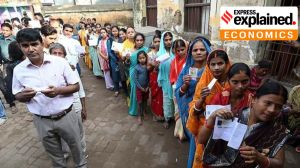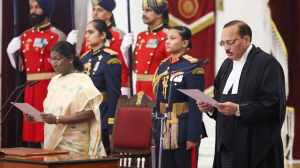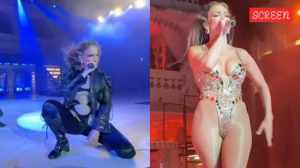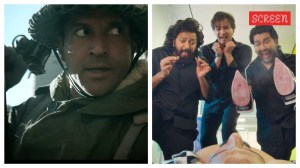Father’s death sparked Squillari’s rise
Paris, June 8: Surprise French Open semifinalist Franco Squillari was a talented but lazy teenager at his tennis club in Buenos Aires.It w...

Paris, June 8: Surprise French Open semifinalist Franco Squillari was a talented but lazy teenager at his tennis club in Buenos Aires.
It was only after the shock of losing his Italian-born father Pier to lung cancer four years ago that the 23-year-old Argentine learned the value of having to fight for something, his coach Horacio De La Pena said on Wednesday.
“He was very lazy. He was the star of his club and thought he didn’t have to work,” De La Pena said after the unseeded Squillari reached his first Grand Slam semifinal.
“The best thing I ever taught him was how to train. I told him you’re not the best, the best is the (World) Number One,” former Tour player De La Pena said.
“When his father died (Squillari) understood he was alone and what it meant to have to work for something. Before his father had always been there.”
Munich champion Squillari beat Spaniard Albert Costa 6-4, 6-4, 2-6, 6-4 to become the first Argentine to reach the semifinals in 18 years and the fourth all told.
His three predecessors Enrique Morea, semifinalist in 1953 and 1954, 1997 champion Guillermo Vilas and Jose Luis Clerc, who were both in the last eight in 1982, all watched Squillari win on centre court.
“Guillermo and Jose Luis congratulated me afterwards. It was great coming from big names like them,” Squillari said.
“Vilas told me about some feelings he had when he reached the same stage here. They have already lived through this,” said Squillari who comes from a family who spent all their leisure time at their tennis club, Deportes Racionales in Buenos Aires.
Squillari said the support of his family was as important as that of the coaching team around him. He said his mother burst into tears every time he phoned home after a victory.
De La Pena said that when he quit the Tour and went home to Buenos Aires in 1994 Pier Squillari came to ask him to coach his son.
Squillari had all his current shots but his positioning was poor, said De La Pena who had never before travelled with the player on tour.
“His previous coaches all tried to make him play on the baseline but he’s too slow for that,” said De La Pena who reached the fourth round at Roland Garros in 1986.
Squillari has one of the hardest forehands in the world game but he plays very deep because he needs time to place himself for a fast return.
“He was never in a position to hit the ball hard. So now he plays a heavy first ball and then steps back to wait for the fast return,” De La Pena said.
“He also played a very good backhand on Wednesday that gave Costa a lot of trouble.”
Squillari has improved his service considerably but still needs more work on it and will return to Buenos Aires after Roland Garros to prepare for Wimbledon, he said.
“His service used to be poor. He needs to improve it and also work on coming in (towards the net) more,” said the coach.
Squillari said that having De La Pena on Tour with him helped enormously but it has also got the coach into trouble.
He was handed a coaching violation during Squillari’s quarter-final victory and complained that he had merely been encouraging his player.
“They told me I had made too many gestures. I said maybe I express myself too much but I think it’s very unfair that tennis is the only sport in the world where you can’t be helped by your coach.”



- 01
- 02
- 03
- 04
- 05



























